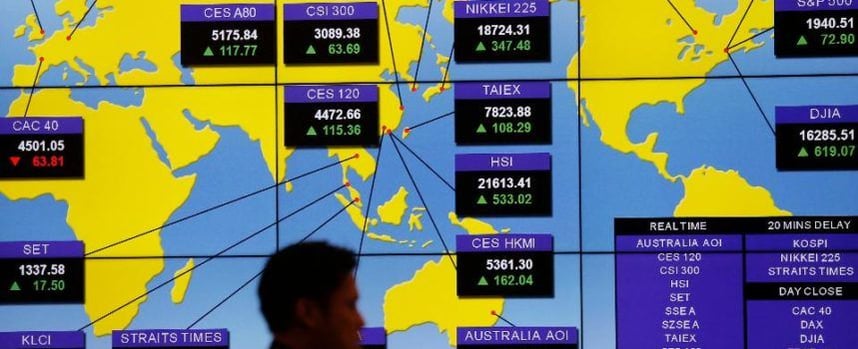Credit: Associated Press, Vincent Yu
Earlier this summer, I was a panelist for IMN’s Global Indexing & ETFs Conference, which brings together investors, advisors and academics to explore investment opportunities and current market issues. My panel focused on Emerging Markets, which has been outperforming in 2016 after several years of lagging all other traditional equity asset classes.
It was a fascinating discussion, but I wrote down a few of the topics that I found to be particularly relevant to the broader investment community.
What is your approach to Emerging Markets? Emerging Market equities are frequently reported as an inefficient asset class where information is priced in slowly and reliable data is far from universal. Is your exposure to these markets based on a passive, active or hybrid approach?
I generally disagree with the idea that Emerging Markets are inefficient. If they were relatively inefficient, then we would see traditional active management do well, but the latest SPIVA report shows that nearly 92% of Emerging Market managers failed to beat the benchmark (see here for more).
So while data may not be reliable and Emerging Markets lack some of the transparency enjoyed in more developed markets, everyone faces the same barriers and prices reflect information that is available whether that information is reliable or not.
I also don’t believe the passive versus active debate is really all that meaningful. You can be plenty active using index funds or passive using something that doesn’t track a market cap weighted index.
I prefer Emerging Market exposure that is low cost, low turnover, highly disciplined, systematic, and diversified. These are all things that are true of a traditional index fund, but traditional index funds have some disadvantages due to trading frictions and a lack of flexibility.
Are BRICS overrated?
I would argue the term BRICS is overused and overhyped in the sense that it was useful in 2001 when the term was coined to describe the four largest emerging markets – South Africa joined in 2011 and expanded the BRICS nations to five – but separating out the BRICS from other prominent emerging market nations is now less meaningful.
Global diversification requires looking at the available investing opportunity set. Why would anyone want to exclude countries like Indonesia, which is the fourth most populous nation in the world? Or South Korea, which some people actually consider to be a Developed International market now. The list goes on and on with Turkey, Mexico, etc.
Are Emerging Markets cheap right now?
Emerging Market valuations are pretty much in line with their historical levels. They are relatively lower than U.S. stocks, but that doesn’t necessarily make them undervalued compared to U.S. stocks.
Even if I believed Emerging Market stocks were overvalued or undervalued, that wouldn’t impact my long-term, strategic allocation to those stocks.
Stock prices in any asset class can remain above or below historical valuations for extended periods of time. Although they are useful in setting return expectations, they are notoriously bad tools for predicting short-term market movements.
Why are you investing in Emerging Markets? There are high levels of political and economic instability across the various countries. What are your compelling reasons to invest in Emerging Markets?
You should invest in emerging markets for the benefit of diversification. The historical data set is relatively small relative to other major equity asset classes, but there is sufficient evidence to suggest that Emerging Market exposure should at a minimum reduce the overall volatility of your equity portfolio. Hopefully, over time, it will also produce higher returns.
Many experts believe that local-currency Emerging Market bonds are especially attractive. Do you share such a sentiment?
In my opinion, adding Emerging Market bonds today is yield-seeking behavior. Adding a sector or asset class should be viewed in the context of a 20-year decision. I view fixed income as the safest part of an investment portfolio. Emerging Market bonds may offer a nice short-term opportunity, but the long-term compensation for that level of credit risk is not high enough given the additional expected volatility. I would much rather take bigger risks on the equity side of the portfolio and keep fixed income as safe as possible.
This article originally appeared on Forbes.com.









